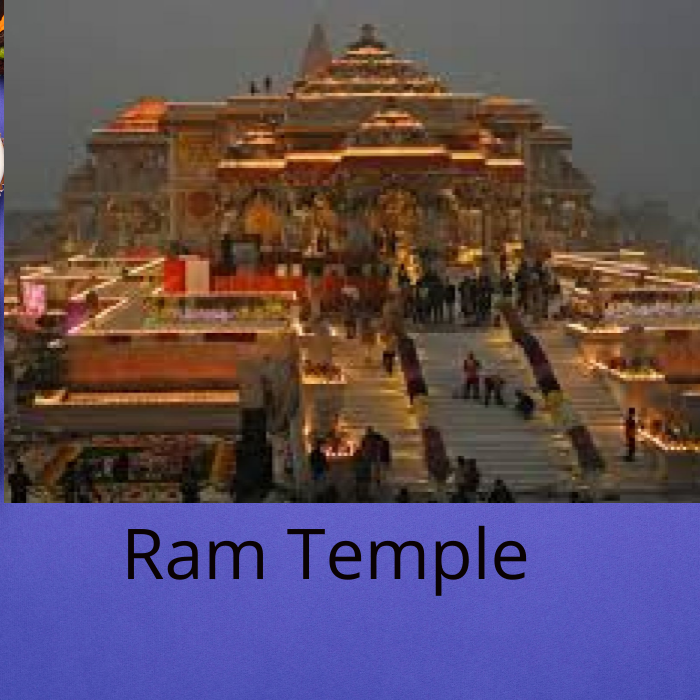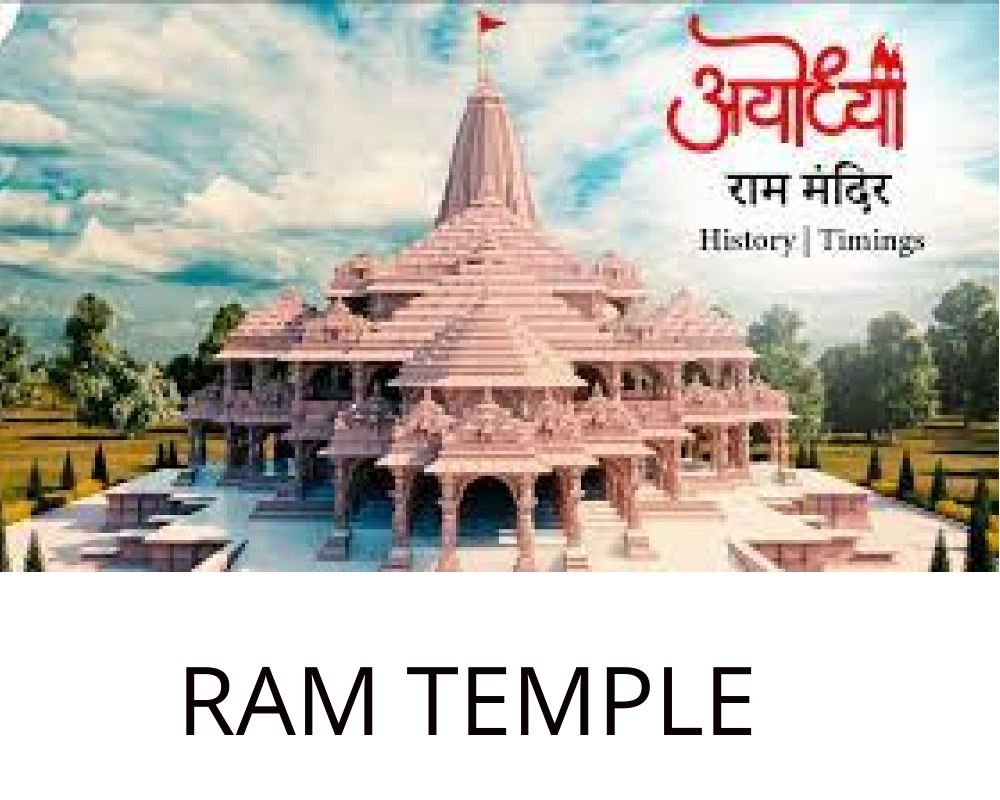Dedication of Ram Temple in Ayodhya: Exploring Historical Perspectives and Insights from Gandhi, Vivekananda, and Tagore
The Ram Temple will be dedicated in Ayodhya on January 22 at the precise spot where the 500-year-old Babri Masjid was demolished on December 6, 1992. Notably, the Supreme Court acknowledged the grave legal violations in the demolition of the mosque and approved the construction of the temple at that location.
Historical personalities such as Swami Vivekananda, Rabindranath Tagore, and most famously, Mahatma Gandhi, would probably feel disheartened and embarrassed to see their lofty principles being violated by building the ram temple.
The renowned Lakshmi Narayan Temple, often called the Birla Temple, was officially opened by Gandhi on March 18, 1939, which was 75 years ago in Delhi. There, he addressed a sizable gathering of people, stressing the need to eradicate prejudice and sectarian animosity while outlining the temple’s significance and relevance in the framework of religious respect.
Gandhi said, “Every follower of the Hindu religion should pray daily that the knowledge of every known religion in the world develops day by day and serves the entire humanity.” A passionate speaker, he expressed excitement about the temples saying, “I hope these temples will propagate the idea of equal respect for all religions and help eliminate sectarian animosity and disputes of the past.”
Can the demolition of the Babri Masjid and the subsequent building of a temple at the same location be considered a “grave violation of the rule of law” in the context of Gandhi’s previously indicated viewpoint?
The fact that Hindus constructed temples for adherents of other religions was something Vivekananda was proud of. Prior to Gandhi voicing these lofty opinions, Vivekananda gave a lecture in Madras in 1897 following his momentous voyage to America. Among other things, he discussed his participation in the Parliament of World Religions. He was proud of Hindus erecting mosques for Muslims and churches for Christians, saying that this was the way of the future.
He emphatically stated, “The cessation of cruelty, violence, and brutality is imperative for the progression of any civilization.”
. No civilization can rise above its foundations until we view one another with generosity and approach the religious beliefs of others with compassion and openness. The first step toward that much-needed charity is to view others’ religious beliefs with kindness and generosity.”
“Furthermore, regardless of how different our religious beliefs may be, we must not only be altruistic but positively helpful to one another,” Vivekananda went on. As I just told you, this is what we do in India. Here, Hindus have constructed mosques for Muslims and churches for Christians, and they still do. That is the proper method.” In modern India, those in positions of power who aim to maintain state control frequently bring up Vivekananda. They still need to pay close attention to his motivational remarks, nevertheless, especially in light of the current misinterpreted religious zeal that endangers the principles of religious tolerance.

The Ram temple Poem by Tagore
Tagore might have performed his 1923 poetry “Dino Daan” if he were still living to see the dedication of the Ram Temple in Modi’s New India. His meter-perfect poetry is the nation’s and Hinduism’s wise defender.
In his poem, Tagore poses questions to a monarch regarding the existence of God in a temple that the king has sanctified, using the voice of a saint. The king becomes enraged with the saint and accuses her of speaking in an atheist manner when she brazenly denies the existence of God in the temple.
The lines he repeated, “There is no God in that temple,” are encapsulated in these verses by Tagore, which are published below. Enraged, the king exclaimed, “No God? Saint, do you not sound like an atheist when you talk? “A golden idol shines on a throne embellished with precious jewels; yet you say it’s empty?”
The saint, standing firm in truth, replied with force, “It is not empty; rather, it is filled with royal pride. O king, you have not bestowed divinity upon this world, but upon yourself.”
Keeping his cool, the saint told the strong monarch the truth. The king had offended God with his hollow religious rituals and lack of any spiritual depth. God, unsatisfied with the king’s false religiosity devoid of true spirituality, became enraged and redefined the foundational principles of the temple. “My eternal home is illuminated by infinite lamps, Amidst the blue sky, The foundation of my home is made of these values: Truth, peace, compassion, and love,” as Tagore states in one of his poems.
Does a stingy, impoverished monarch who was unable to shelter his own afflicted peasants genuinely want to provide me a place to live?”
Calm and collected, the saint told the enraged and haughty king that it took two million gold crowns to consecrate the Ra once it was built and all the ceremonies were performed. The calm saint told the strong monarch that the temple was constructed during a time when millions of people were suffering from a drought and had gone without food and shelter. God, unsatisfied with the king’s false religiosity devoid of true spirituality, became enraged and redefined the foundational principles of the temple. In his poems, Tagore states: “In the blue sky, my eternal home is illuminated by infinite lamps.”
These principles serve as the cornerstone of my house: love, compassion, truth, and peace.
Does a stingy, impoverished monarch who was unable to shelter his own afflicted peasants genuinely want to provide me a place to live?”
Calm and collected, the saint told the enraged and haughty king that it took two million gold crowns to consecrate the Ram temple once it was built and all the ceremonies were performed. Calm and tranquil, the monk told the strong monarch that the Ram temple was constructed during a time when millions of people were suffering from a drought and had become food and shelter insecure.
God was infuriated by the king’s hollow religiosity, which lacked any spiritual principles, and in response, he redefined the foundational principles of the Ram temple. “My eternal home is illuminated by infinite lamps, Amidst the blue sky, The foundation of my home is made of these values: Truth, peace, compassion, and love,” as Tagore puts it in his verses.
A stingy monarch, tormented by destitution, unable to offer solace for his own anguish “Does he really want to provide me with a place to live?”
Tagore’s remarks are a sobering indictment of a religion bereft of humanistic principles and a request for reflection on the part of those engaged in the Ram Temple’s consecration.
